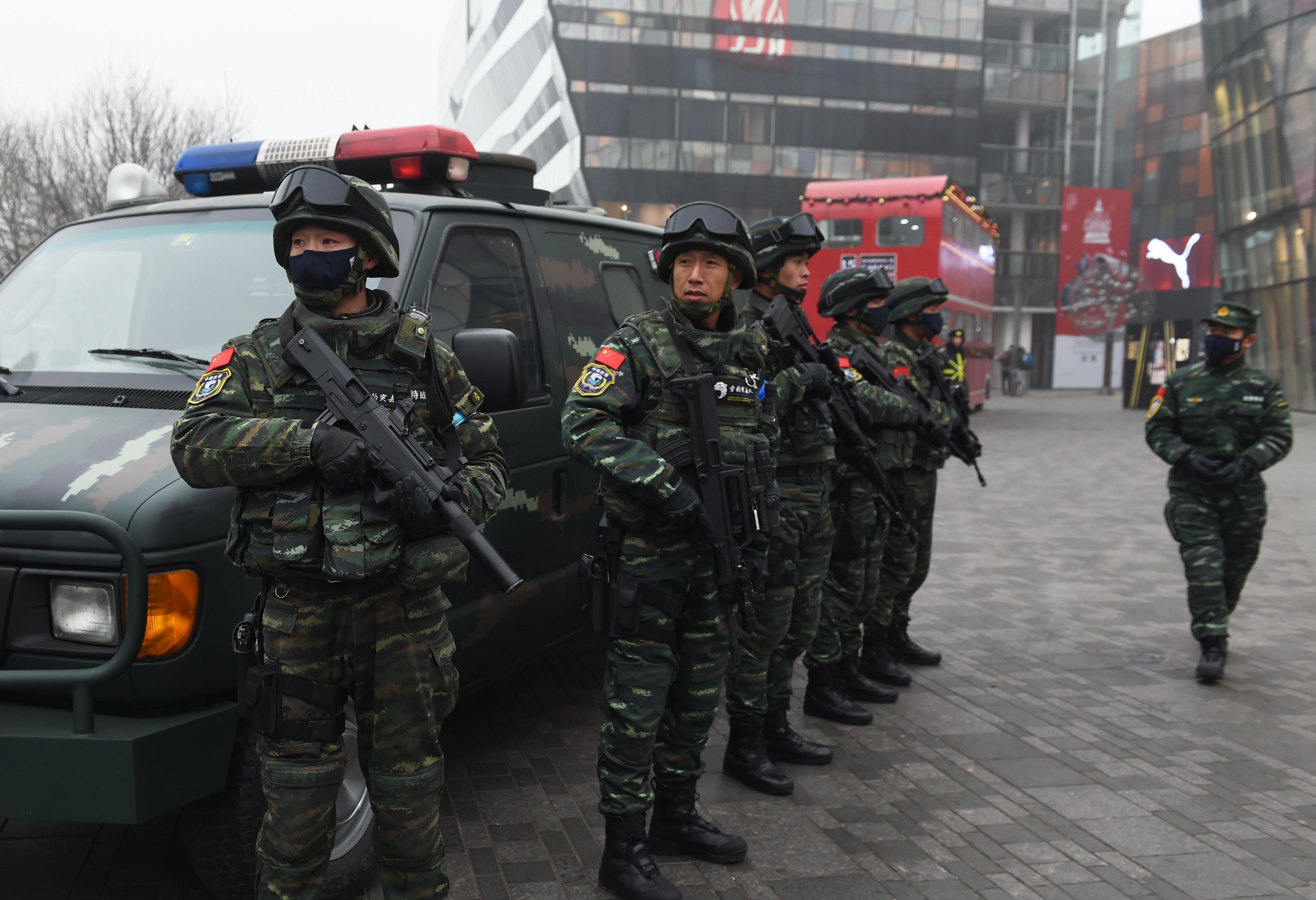On Sunday, China’s rubber stamp parliament passed the country’s first counterterrorism law, a controversial measure that has drawn criticism from human rights groups, tech companies, and the U.S. government.
Much of the debate around the law, which details funding and coordination plans for counterterrorism efforts, has focused on what it will mean for international technology companies. An early draft of the law would have required tech companies operating in China to store their data locally and share encryption codes with the authorities. These clauses were specifically criticized last March by President Obama, who described them as “something they’re going to have to change if they expect to do business with the United States.”
The version of the law that was passed Sunday backs down on the demand for encryption code handovers, although, according to Xinhua, it does require that companies must “provide technical support and assistance, including decryption, to police and national security authorities in prevention and investigation of terrorist activities.” In theory, this doesn’t sound that different from the kind of help that several Internet companies have provided to counterterrorism investigators in the United States, or laws being considered by U.S. allies like Britain—and the Chinese media has wasted no time in attacking U.S. “double standards.” But the new vague language isn’t necessarily a good thing.
According to the Wall Street Journal, several tech firms are worried that they don’t have a good idea of what “technical support and assistance” might entail
Shannon Tiezzi of the Diplomat notes that the most important aspect of the law may be China’s first official legal definition of terrorism. As described by Xinhua, it’s also pretty vague:
The term “terrorism” is defined as any proposition or activity—that, by means of violence, sabotage or threat, generates social panic, undermines public security, infringes on personal and property rights, and menaces government organs and international organizations—with the aim to realize certain political and ideological purposes.
Given that China has, in the past, accused everyone from the Dalai Lama to pamphleteering feminists of sowing unrest and disturbing social order, it’s not unreasonable to worry about how widely authorities will pursue this definition. The law also restricts media coverage of terrorist attacks. This was heavily restricted even before the law was passed, as demonstrated by the case of Ursula Gauthier, a French journalist who was expelled from China last week after publishing a story suggesting that China was using fears of terrorism to justify crackdowns on the Uighur minority.
The Uighurs, a Muslim ethnic group with a strong separatist movement living mainly in the northwestern Xinjiang province, have been responsible for a number of recent deadly attacks throughout China. The government has tied Uighur activities to international jihadist movements, though some experts are skeptical about the extent of the connection.
The new law also authorizes the People’s Liberation Army to conduct counterterrorism operations overseas. China has traditionally steered clear of involvement in such missions, particularly in the Middle East, but that calculus may be changing. Chinese citizens have recently been the victims of terrorist violence in Syria and Mali, and at least 300 Chinese people are fighting with ISIS according to state media reports from late 2014. Leaders in Beijing, who normally love to contrast their country’s “peaceful rise” with America’s many foreign military entanglements, may feel they can no longer afford to stay on the sidelines of the fight against groups like ISIS. Ironically, arch-rival Japan has been following a similar path.
